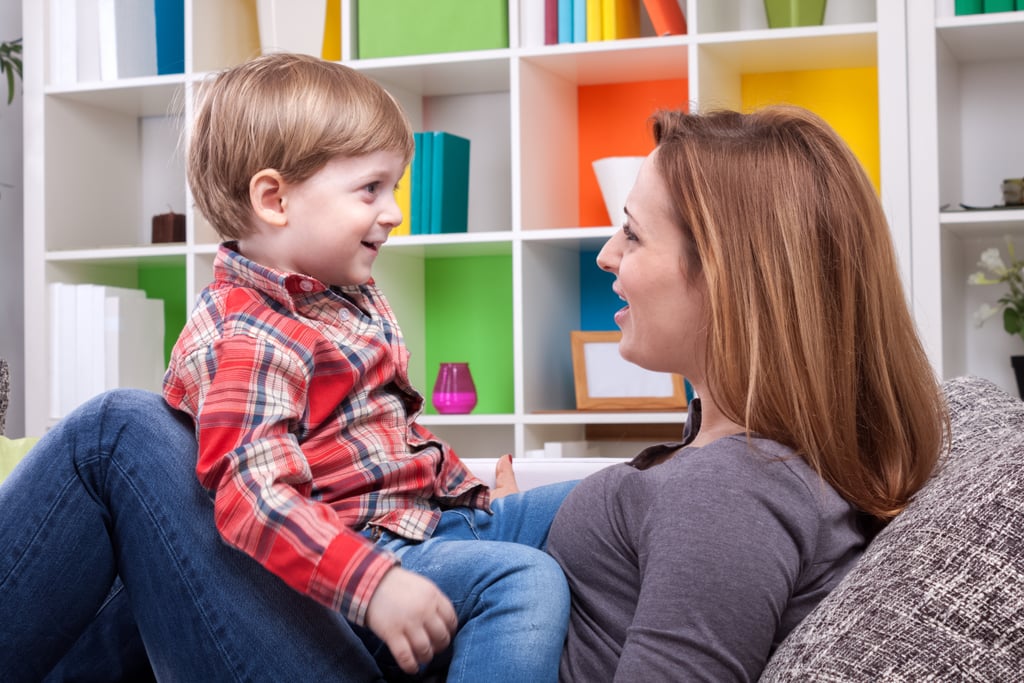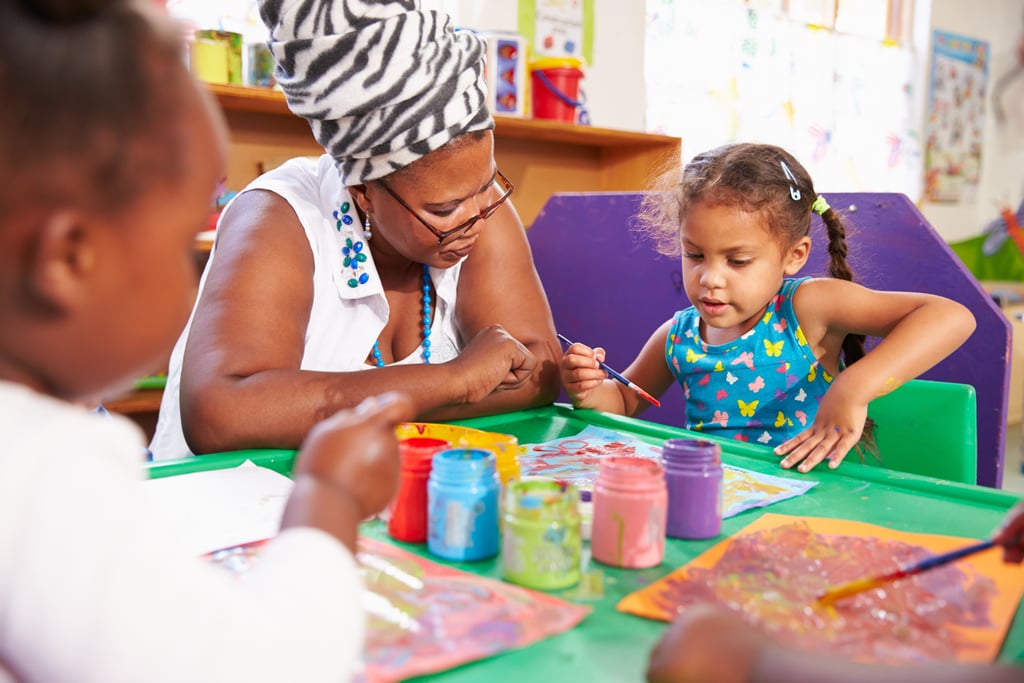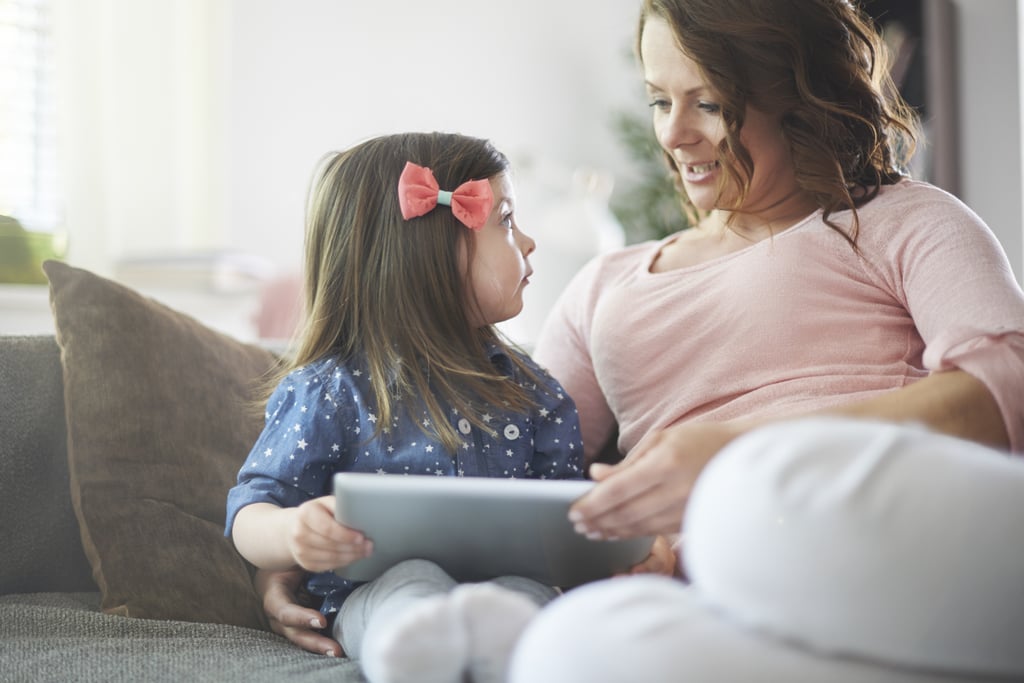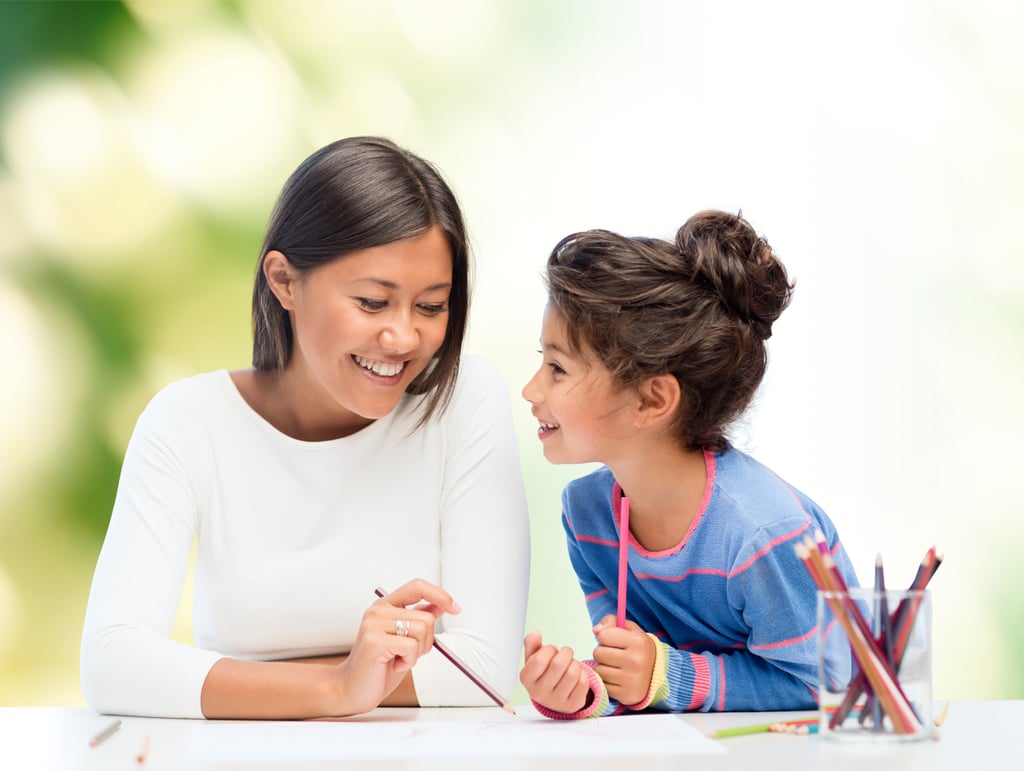Growing up, my mom would ask me every single day, "how was school?" and no matter how uneventful or amazing my day was, my response was always "good." I know my mom was just trying to gauge how my day was, and she was probably hoping that if I didn't have a good one, I would actually change my answer. But the truth is, it became a sort of learned response and cut off any meaningful communication we could have engaged in as a result.
When we ask our children closed questions that are almost guaranteed to be answered with one word, we're doing them a disservice by not allowing them to creatively and openly speak to us. Our children need a lot from us [1], but open communication is definitely at the top of that list for a number of reasons.
Here are seven ways that asking open-ended questions — that will spark so much more than a one-worded answer — can help you to communicate better with your child and encourage the development of a number of vital skills.
They help to develop language.
Because an open-ended question involves much more than a "yes" or "no" answer, more words are going to be strung together in response. Rather than asking, "What is the weather today?" and looking out the window together waiting for an answer, ask, "Can you describe what the weather is doing today?" Now, instead of "rain," you’ll get something completely descriptive of what the rain looks like, what it’s doing, how it sounds, etc. If you find you’re still getting a short answer, think of some fun prompts to help expand their answer (try the five Ws and "how" questions). If open-ended questions are new for you and your child, it might take them some time to realize they can elaborate freely with this type of question.
They spark creativity.
If your child is drawing what, without a doubt, looks like a house, rather than asking, "Is that a house?" which could stifle their creativity, try, "Can you tell me about your drawing?" This gives your child an opportunity to share his unique train of thought, and you may find that even though his drawing looks like a house to your conventional, adult eye, to him, it might be something completely different and something that you never could have guessed yourself.
They encourage problem-solving.
If your child is working through some kind of issue — say a wheel fell off their favorite toy car and they’re frustrated — asking them an open-ended question like, "How do you think we can fix your car?" will help kiddos to come up with their own answers and solutions to the problem. If we as parents feed our children a question like, “Should we reattach the wheel to it?” we eliminate the cognitive processes necessary to solve problems, which isn’t helping them to develop problem-solving skills.
They help you to start a conversation, rather than gather information.
When we talk to our kids, our aim shouldn’t be to gather information; it should be to communicate in an enjoyable manner and to encourage our kids to be social beings who are proud of their voice and opinions. Open-ended questions move a conversation in a way that predictable, closed questions can’t.
They often inspire more questions.
Once you get your little one talking as a result of an open-ended question, you likely won’t be able to get them to stop. A simple question about your child’s day at school, for example, could then lead to them asking you questions that either showcase what they learned and challenge your knowledge or could lead to questions they have that could clarify a concept they may not have grasped during the school hours. "How was school?" is always followed by "good," which ends the conversation right there and doesn’t help you to communicate with your child in the least.
They help your child — and you — learn.
In-depth discussions sparked by open-ended questions usually lead to so much more than originally intended. Spending time really chatting with your child helps you to learn more about them and how they process things around them, and it helps them to learn not only about the topic of discussion but also about the mechanics of conversation.
They help you — and your child — to be a better listener.
When you ask an open-ended question, it’s important to leave some "wait time" afterwards so that your child can really think about how to respond. When we leave more time for our child to answer our initial question — rather than prompt them with a new question that may help them to think of an answer faster — we help to keep the gears turning in their heads and provide them with that undivided attention that every child so deeply craves.
Conversely, if we wait longer to answer their questions to us — Dr. Mary Reckmeyer, executive director of Donald O. Clifton Child Development Center in Omaha, NE, says adults typically wait only nine-tenths of a second before answering a child’s question! — and follow that wait time with thoughtful answers, we are modeling listening for them and encouraging a vital social skill.






